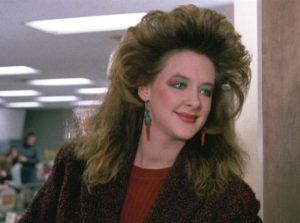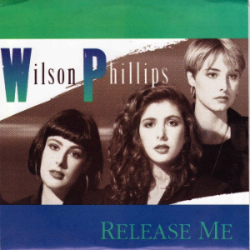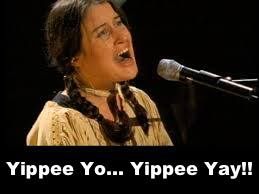Okay, if you were to attend an 80s theme party… what would you wear?
For me the thoughts are always the same: should I go as a punk rocker? Roll up the sleeves of my old Boingo shirt and peg my pants like the old days?
For females there is always the option to rock the Material Girl-look or (for the ambitious) a full-on leotard with leggings and would bring many back to their sister repeatedly listening to the Fame soundtrack. Metalheads would be in attendance, Glam bands would represent, and of course the Flock of Seagulls-look for the few that could pull off the hair.
(I usually go as John Taylor from Duran Duran.)
Lots of choices to represent a very eclectic decade. Inevitably, the room is chuck-filled with those sporting New Wave fashion and hair dos. Of course, Wang Chung is played.

But did you realize all of this craziness started before the ball was dropped in Time Square at 12:00 am January 1st, 1980? Maybe not the mullets, but the music was established well before. First, let’s define something:
What is 80s music?
Good question, with a broad answer. Let’s go back to the decade theme party.
What would you wear to a 50s party? Dudes would be greasing their hair, pegging their bleach-white shirts, some would wear Buddy Holly suits, etc. This would be fun for the gals of course with the poodle skirts and ponytails rule no matter what era! Venture away from those choices, and the hostess would get on you for straying from the theme.
What about the 60s? Hippy, Beatles-influenced dress would dominate. Unless you went as a square.
That brings me to the 70s. Of course, you would see bell bottoms, some dude would come as fat Elvis, many would break out some Zeppelin-inspired dress that would pass as both 70s rockers and the singer-songwriters of the time (myself being a big Cat Stevens guy). Soul Train would represent and disco would probably dominate the crowded room.
I don’t think of Punk rock when I think of the 70s.
Sure, if you lived during that time you would know it saw its origins then… but many like me weren’t into music and pop culture yet. Punk tunes NEVER come up in my Pandora settings when I am in the mood for some 70s jams — I am fed a steady diet of Al Green.
Punk always shows up mixed in with my New Wave music.
In fact, New Wave music has gone on to dominate how we view the time and it is heavily rooted in Punk. If you told Siri to play you some “80s music”, you would experience a mix of New Wave and Punk dominated by the Talking Heads, The Police, Devo, The Clash, The Cure, Sex Pistols, Thompson Twins, Joy Division, The Ramones, etc.
These artists did some of their best work in the 70s, but it took the 80s to go mainstream:

1978… A Magical Year for Music
So the 70s has lost their claim to New Wave and Punk rock. It’s been adopted into the 80s… Stolen. Hijacked.
Who decided this? I sure didn’t…
Again, algorithms designed to segment and feed music to listeners based on their thumbs-up/thumbs-down preferences has helped to tie together music that truly belong together.
Music is being grouped together regardless of when it was recorded!
That’s why I don’t get Toto mixed in with my New Wave mixes… although I enjoy Toto and their 1983 hit “Africa” was done smack dab within one of my favorite years of New Wave; Pandora understands it has its own place.
You may say, “but it’s an 80s classic!”.
Sure, but in a different genre than my station that gives me “Psycho Killer” done in ’77, “In Your Eyes” off the brilliant So Album from 1986… even tracks from the early 90s are better suited.
Technology has made us masters of segmentation…
So, when you get into your car and pull up 80s music on Sirius Radio you are going to get punks like The Clash, Sex Pistols, Ramones, etc. intermixed into your stream of New Wave, Synth pop, Goth, etc. Tracks as early as 1974 with David Bowie! (Pretty sure Iggy Pop started sometime during the Pre-Adamic era.)
Seriously… would anyone ever refer to “Roxanne” as a 70s song?
Regardless that many were enjoying Punk and New Wave music back then, in our minds (and the minds of generations to come) the music of the 70s will be known for the emergence of Hard rock (thanks to Zeppelin and Black Sabbath), Singer-songwriters (Cat Stevens, Jim Croce, Eagles, etc.), some sweet R&B/Motown, and of course… Disco. So please do not take this as a diss to the 70s. It rocked.
By 1978 Punk rock had solid footing with the Sex Pistols, Clash, Ramones, Black Flag… Although never accepted in the music mainstream, these bands were firmly established in 1977, let alone 1978! (Yes, a case could be made that it started in ‘77, but I won’t get overly ambitious.)
Punk Begat New Wave and Alternative Music
This 70s “heyday” of Punk provided the foundation that inspired an entire generation of artists.
It put the drive behind New Wave bands like The Cars, Devo, Elvis Costello and The Jam that all started in 1978. These artists inspired those to follow… The Pixies especially are given major credit on inspiring Grunge bands and Alternative bands even active today. Frontman Frank Black credits The Cars 1978 self-titled album as a major influence. Dave Grohl also points to Black Flag and Bad Brains playing a major role in his musical education.
GoGo’s started punk, Madonna started off punk, Siouxsie was a punk, and Oingo Boingo’s punk influences are clearly heard in their initial three albums… as well as The Police. I mean, Joy Division’s Sumner and Hook went and bought their respective instruments after watching the Sex Pistols play their second-ever performance (Of course, Sumner and Hook went on to also form New Order and Electronic later into the decade).
To further add to my stance, the blues progressions and riffs were the basic backbone used in the 50’s, 60’s and 70’s rock music… but these scales and accompanying sounds were never accepted by 80s artists (unless played funky). So stylistically, 80s music was rooted in Punk rock which morphed, mellowed, and added in more synth over the years to shape its own sound.
Listen particularly to the drumming… up-tempo, innovative drumming was the foundation behind those driving eighth notes. Easily recognizable. 80s drummers took their cues from innovators such as Stewart Copeland from The Police that mixed in elements of Reggae, Punk, and Rock; Chris Frantz from the Talking Heads even brought in African polyrhythms into his playing! I pretty much just listen to Terry Bozzio’s drumming whenever a Missing Persons song comes on (Dude played with Zappa). They all had chops, yet, opted for more space allowing for the subtle nuances to speak — far less cymbal hits and drum solos than in 70s drumming (No disrepect intended Neil Peart).
Rhythm guitarists were lone gone — melody and songwriting found more of a voice through New Wave music. A guitar riff no longer dominated every song. The bass was turned up.
In fact, punkers intentionally distanced themselves from anything associated with Classic rock and the long-winded Jam bands. The songs were short by design and today you would much sooner hear a punk quote A-Ha than a Beatles lyric.
[U2 is the exception to this rule as they were accepted into the New Wave. In fact, they were accepted by both camps. You can hear the immortal sounds of The Joshua Tree played alongside rockers like Journey, Survivor, Toto, Foreigner — groups more influenced by the old 60/70s sounds. Today you hear them all played together on Classic rock stations — another example of segmentation regardless of when the music was recorded. I wouldn’t lump Sheryl Crow as a 90s artist either; she was in this same rock sub-genre that was clearly rooted in the old school Classic rock. The Tom Petty of the 90s.]
There is an absolute connection: Punk begat New Wave and 1978 was the year they officially merged. Big time. Their fusion produced a sound that quickly started making ground into the mainstream (however I admit it had not taken over as of yet).
1978 for me personally is special because it represents albums of some of my favorite 80s artists such as Elvis Costello featuring his classic This Year’s Model which gave us great tunes such as: “Pump it Up”, “Lipstick Vogue”, and “Radio Radio” (which got him kicked off of SNL for a decade). Not only that, but Costello was well-established by ’78 having given us 80’s standards like “Watching the Detectives” and “Allison” beforehand in ’77!
Outlandos d’Amour by The Police is my favorite album by them; Joe Jackson’s Look Sharp gave us “Is She Really Going Out with Him?”. Don’t even get me started on Devo’s Are We Not Men and More Songs About Buildings and Food by the Talking Heads!! Classic, classic stuff that has held up under the test of time.
On top of that… 1978 gave us the formation and early work of my favorite New Wave band Oingo Boingo (You should hear my live acoustic cover of “Only a Lad”… it’s taken me 20 years to nail).
The Mid to Late 80s
Pop rock took their cues from these early pioneers throughout the entire decade (and beyond).
You could hear it in one hit wonders like The Outfield’s 1985 hit “Your Love”. It just reeked of that early Police driving sound both instrumentally and vocally. So whilst Sting had lost his cojones and was off singing about blue turtles and what not… the market provided a piercing tenor voice with some chutzpah reminiscent of the Outlandos album. (Today, All-Star baseball player Charlie Blackmon walks up to the plate with this tune blaring over the loudspeakers and the crowd screaming along “tonight!!!!”. Best personal theme song in the Majors.)
One of my favorite groups from this time is Love and Rockets. They were huge in my Southern CA high school from 1986 well into the early 90’s. They were immediately accepted as cool by the Goth crowd because they were the instrumentalists in Bauhaus (they were just missing frontman Peter Murphy). However, they didn’t sound like Bauhaus. They had added in some very eclectic pieces — even the straight-laced, non-black mascara wearing crowd could appreciate their blend of goth, punk, and funk; along with their high songwriting IQ’s.
Bauhaus is another group that was formed and started in the seventies; along with Joy Division they are considered the fathers of Goth music. I remember people wearing Joy Division shirts even ten years after they played their final note; New Order benefited from this Joy Division cred (like the boys in Love and Rockets). Yet, they also didn’t completely sound like their first incarnation. An interesting parallel.
These splinter groups of Love and Rockets and New Order were a product of that early 1978 generation that set the table for pop artists… influenced by the Punk groups. A clear trail.
Like the late 70s Goth bands, Punk icons like the Dead Kennedys (formed 1978) and Black Flag (formed 1976) were both long gone yet still ruled supreme amongst the crowd I hung with at school — someone actually had to tell me they had both broken up. They were bigger than the active Punk bands of the day and this was 1990!
[Seriously, if you lived in 1969 could you get away with wearing a 1963 Beatles Please Please Me album shirt and be taken seriously in an Abbey Road world?]
Synth-Pop and Some Really Crappy Stuff
But the later end of the decade had other genres creep in: early Hip-Hop (which I love), more Metal, Hair bands (I don’t love), and really bad pop like Wilson freaking Phillips!

To finish up my stance/rant of early artists having a huge effect on a generation of musicians throughout the eighties and beyond, let’s look at Synth-pop and the brilliant career of Vince Clarke:
Dude had his fingerprints all over the decade starting off as the major hook writer behind early Depeche Mode (formed 1980), then formed Yaz with Alison Moyet, and ended it with a bang with Erasure. And I dare you to show me how he switched up his sound at all, it’s all vintage Clarke! The working formula had long been established.
Although Synth-pop was an integral part of New Wave… it really took off at the tail end of the decade with Depeche Mode growing to be one of the biggest bands on the planet from ’89-’91. Midi helped to take it all to this new level having been innovated in 1983 and is still being used to this day by recording engineers and artists.
But it was all kickstarted with the very early synth kings that began in the late 70s like Gary Numan, Ultravox, Thomas Dolby, and the great DEVO! I am sure the early lessons Depeche Mode received from Clarke assisted them in arriving at their pinnacle sound.
1993: The Year of the Last Great 80s Song
So, the very early nineties (‘90-’92) had its own unique sound that in my opinion didn’t quite stand the test of time like my favorite span ranging from 1978 to 1983. But still there were great bands like The Stone Roses, Pixies, The Sundays, The Ocean Blue, The Lightning Seeds and of course Morrissey was in his solo artist heyday (hamming up every minute of it).
But New Order put out a song in 1993 that belongs in every 80’s shuffle: “Regret”.
Of course, ‘93 to me is remembered mostly for the Smashing Pumpkins (who rock), Nirvana, and the height of Grunge music (which didn’t last all-too-long crazy enough which unfortunately spawned into 90s post-grunge pop hell that included hits such as: “Breakfast at Tiffany’s”, and “Where Have All the Cowboys Gone”. Wow… this era is so rotten it requires a blog post in and of itself. But I digress.)

This song “Regret” is required 80s listening and New Order is true to their established voice. They refused to go the route of many other groups (including my precious Boingo) and attempt to “harden” up their sound/image in order to get with distortion pedal-driven times. It could have been written in the middle of the decade.
[However, let it be known that the best part of the Grunge era was it rid us of the late 80s “Hair bands” who immediately found themselves completely uncool, unemployed, broke and a laughing stock. Giving us some amazing VH1: Behind the Music episodes!]
In Conclusion
So the mix of 1978 bands set the table for a run that spanned close to a decade and a half, influenced the major artists of the next era, and can be immediately recognized in even today’s music. This brand of music held an “identity” that is loved and embraced by those who lived during it, and many from the up-coming generation respond well when introduced to it. Today, unfortunately, we have lost that type of identity in music and must look to the past. Similar to the dying art of jazz — it will never be the same as when Miles was playing.
For example, the movie Valley Girl is a must-watch for any 80s fan. Young Nicholas Cage rules as a punk and it scores a solid 82% on the Tomatometer.
However, the soundtrack is what drives the movie. In 1983, the producers shelled out $250,000 to put those tunes on the big screen. Big time bucks considering their budget was $350,000. Yup, 71% of their entire budget went to pay music royalties. Today, musicians have a difficult time getting people to pay $.99 cents.
They say when you pay for something… you tend to value it more. Maybe we’ve lost a little bit of that when we stopped paying for music (Streaming services don’t count).
I miss the days when 2/3’s of a movie budget was dedicated on getting the music absolutely perfect — instead of spent on CGI. (Even if it makes me sound like that old nostalgic guy trapped back in time.)
Today, everyone has their headphones in… but it plays more like background music. Music meant more to us back then.
So I relish the past. And when anyone refers to 80s music… they are referencing an era of music so influential, eclectic, and timeless its lifespan extended well beyond the ten years that encapsulate most decades.
And it rid us of both Disco and double-neck guitars (for a season)…
God save the queen.
Brandon
P.S. – I think The Cure might be the perfect example to illustrate the point of my post:
They formed in 1978 and made an immediate impact with a very raw punk-driven sound that transformed throughout the decade integrating in more synth along with other elements (darker at times… more poppy at times, but eventually they hit their definitive sound with 1989’s Disintegration album in my opinion). They hung on until the very end and finished the era strong with 1992’s “Friday I’m in Love”; which very much reflected the early nineties but stayed true to their established “sound” — complete with an awesome bridge only Robert Smith could write.
Want to Read More of my 80s Rants? Download my FREE eBook!
I cover my formative years from ‘87-’90 and what I discovered in taking a closer look at my very atypical water polo playing career (and it’s just NOT for dudes). An 80s kid coming of age story and it took me writing this book to make sense of it all — I labored to paint just the right 80s picture . In fact, if you can pick up all of my embedded references… I owe you a Coke.
Absolutely NO strumming allowed!
I am very interested in your opinion as well on what made 80’s music great and what defines it… so please leave your comments below! Or, go back to my Facebook post and comment there.

